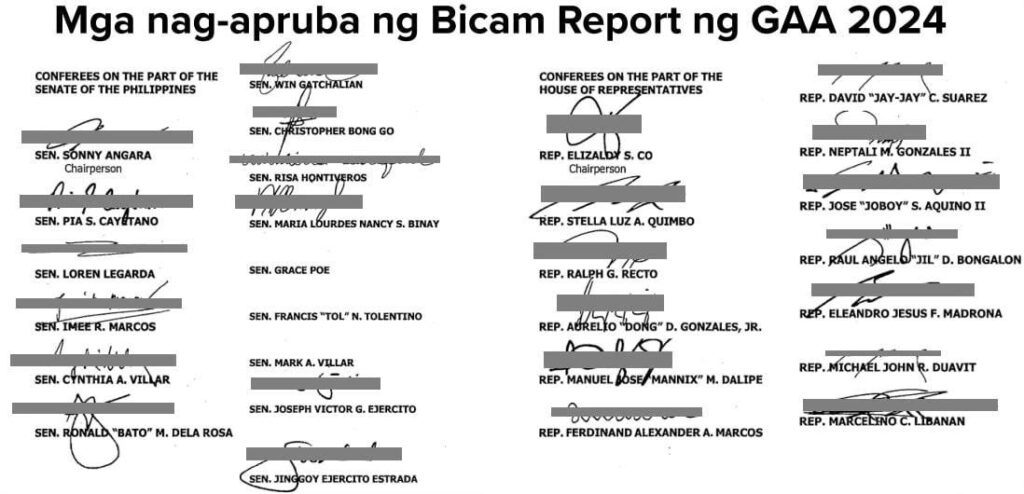The 2024 State of the Nation Address (SONA) delivered by President Bongbong Marcos last July 22, 2024 was an event filled with grandiose rhetoric, yet conspicuously lacking in substance. For more than an hour, the address felt interminable, especially given the scant practical outputs it presented from the President’s 2022 campaign promises.
While the nation anticipated concrete plans and measurable actions, what it received instead were superficial solutions and vague reassurances. One cannot ignore the glaring emphasis on band-aid measures rather than on sustainable strategies, particularly concerning food security. President Marcos touted temporary relief efforts but failed to articulate a coherent plan to uplift the conditions of Filipino farmers. The agricultural sector, which is critical for national food security, remains in dire need of systemic reforms. Instead, we were presented with piecemeal projects that do little to address the root causes of the sector’s struggles. The absence of a comprehensive agricultural policy only underscores the administration’s lack of vision and commitment to long-term solutions.
Moreover, the President fell short of introducing a legislative agenda that addresses the urgent need for better infrastructure and more secure, accessible digital connectivity. In an era where digital transformation is crucial for economic growth and societal progress, this omission is particularly troubling. The lack of a clear plan leaves many wondering how the administration intends to bridge the digital divide and modernize the country’s infrastructure to compete on a global stage.
The President’s remarks on the war on drugs added another layer of ambiguity. While he emphasized that extermination is not part of his policy, he failed to provide any updates on significant drug bust operations. The administration’s approach to drug demand reduction remains unclear, as the number of arrests and the prevalence of illegal drug use continue unabated. Data suggests that the current strategies are ineffective and that a more comprehensive, human-centered approach is needed.
Rising criminality rates were another critical issue that went largely unaddressed. The President’s failure to tackle this head-on leaves communities vulnerable and erodes public trust in the government’s ability to maintain law and order. This oversight is particularly concerning given the increasing reports of violent crimes and the growing sense of insecurity among citizens.
On the international front, President Marcos’ SONA was notably silent on concrete foreign policy measures to protect and promote Philippine sovereignty, particularly in the West Philippine Sea. The ongoing harassment of Filipino fishermen by Chinese forces is a pressing issue that demands strong leadership and decisive action. The failure to call out China for its aggressive tactics and to outline a definitive plan to safeguard our maritime territories is a disservice to the nation and undermines our standing in the international community.
The President concluded his address with a declaration about ending Philippine Offshore Gaming Operators (POGOs), yet he stopped short of categorically banning all similar operations. This leaves room for ambiguity and potential loopholes that could be exploited. Furthermore, he failed to address the corruption within several agencies that have allowed POGOs to become a safe haven for foreign criminals. This lack of accountability and transparency raises serious concerns about the administration’s commitment to eradicating corruption and ensuring public safety.
In sum, President Bongbong Marcos’ 2024 SONA was a masterclass in political theater but a failure in delivering substantive progress. The nation needs and deserves more than superficial fixes; it requires comprehensive, well-thought-out policies that address the core issues facing the country. As we move forward, it is imperative for the administration to shift from rhetoric to measurable action and to prioritize the real needs of the Filipino people over political expediency.




